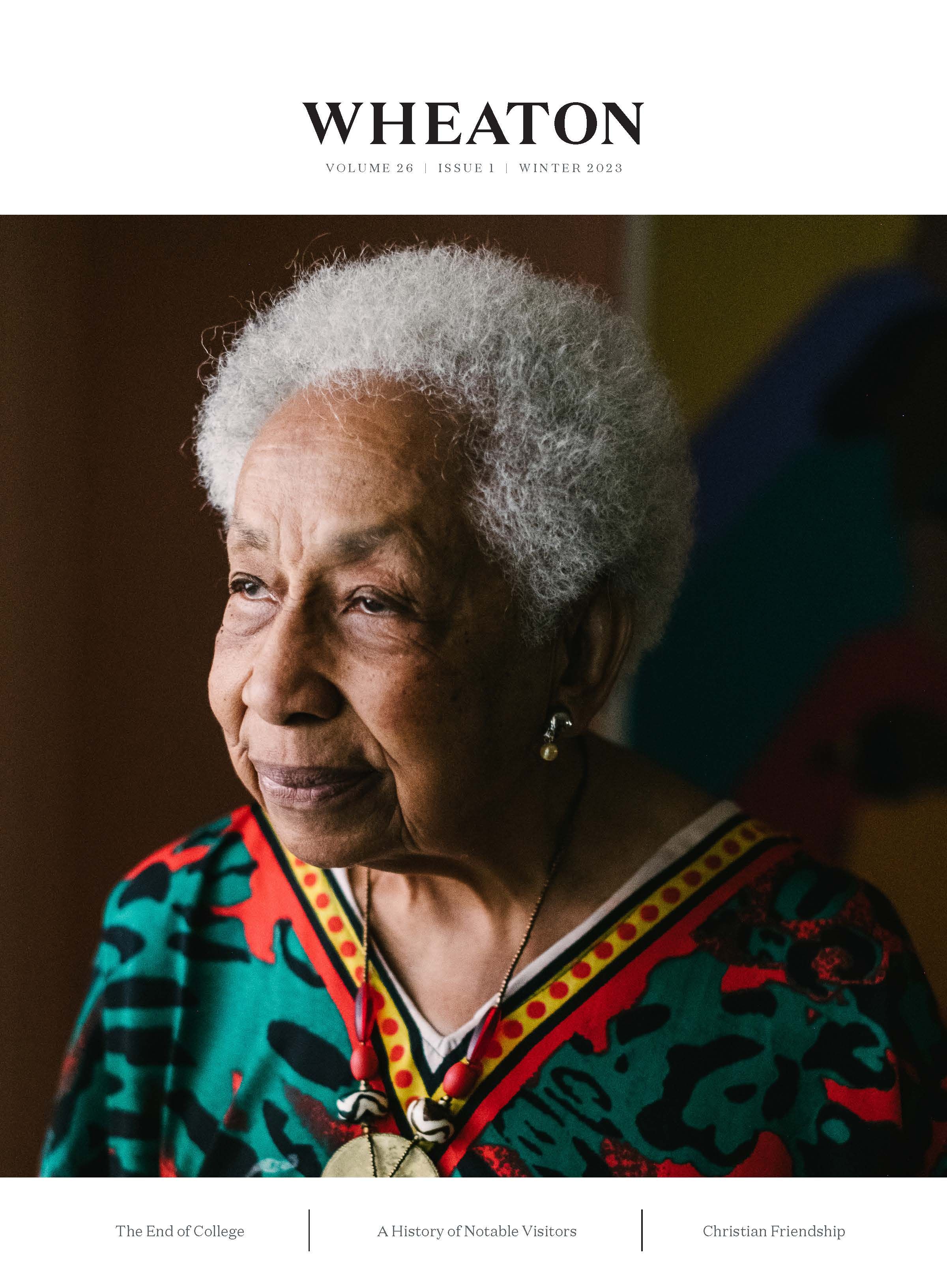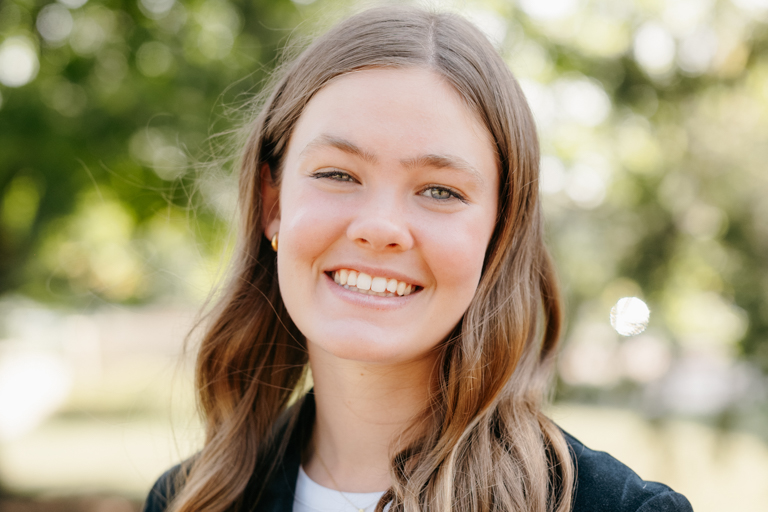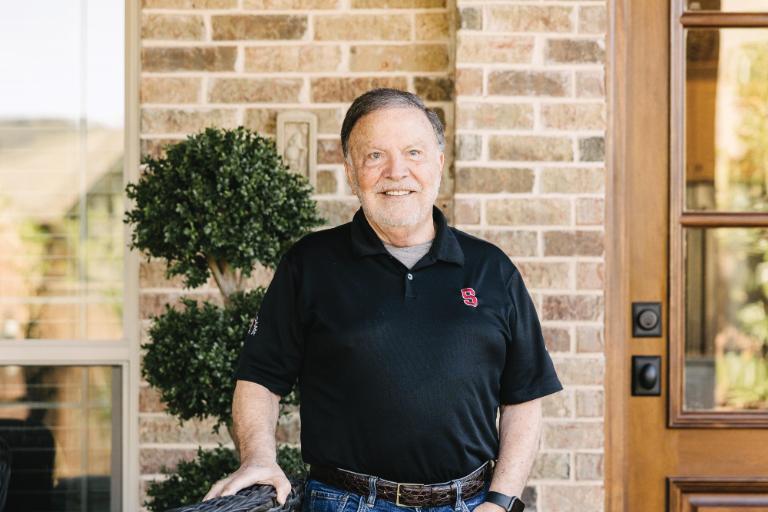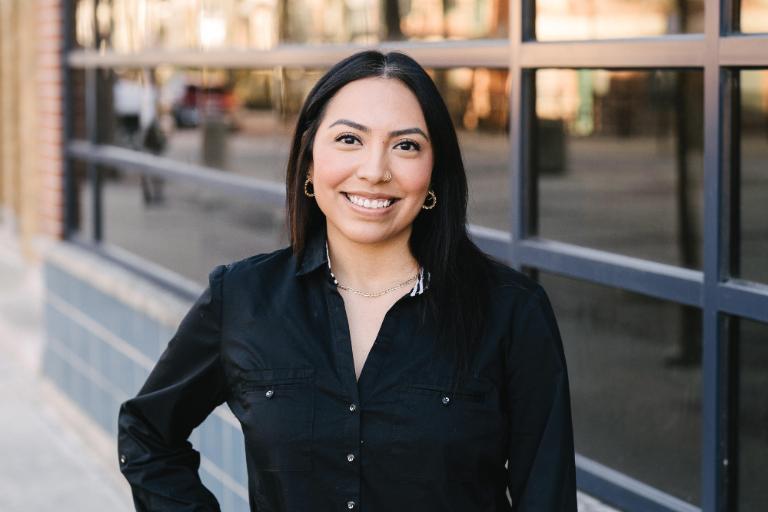Sharing Gifts and the Gospel Through Friendship
How a group of college friends took their fellowship beyond the four years at Wheaton and united to impact the world for Christ’s kingdom.
Words: Bella McDonald ’24 | with reporting by Eliana Chow ’21
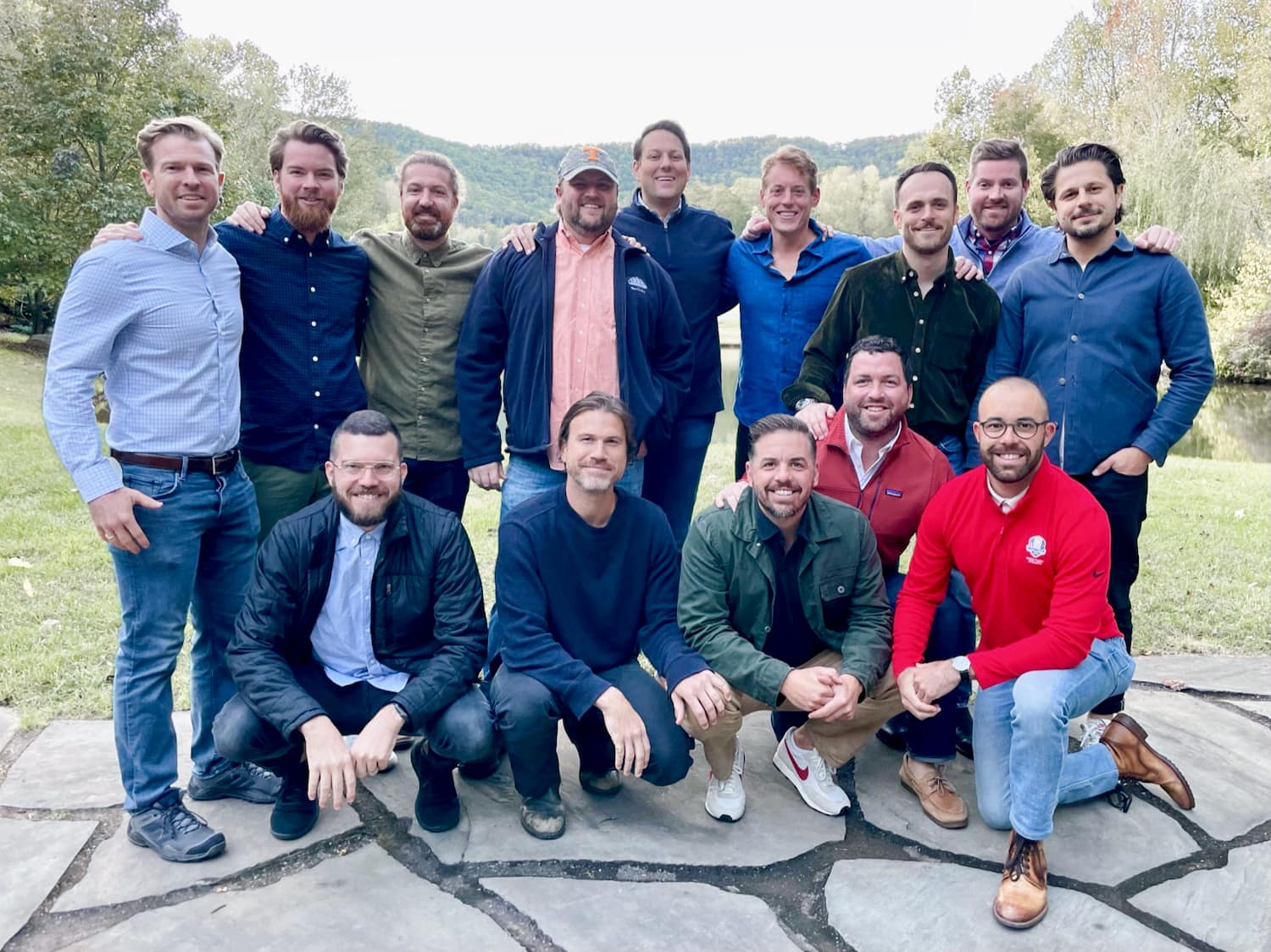
Fourteen members of the Shade Partnership Fund at an annual reunion.
Photo courtesy of Taylor Clausen ’07.
How could 21 classmates from overlapping friend groups sustain and develop their college-made relationships after graduation? This particular group took that daunting question and ran with it.
An extended network of college roommates, teammates, and classmates (including several best friend pairings) realized during their senior year at Wheaton that they didn’t want their relationships with one another to dissolve after graduating in the spring. They would soon be sent into the “real world,” no longer living in such close proximity in Christian community. When one of their professors suggested they create a foundation together, the 21 soon-to-be graduates leaped at the opportunity to do something that would both keep them connected to each other and respond to God’s calling to be cheerful and abundant givers. As their undergraduate careers came to a close, the 21 seniors formed the Shade Partnership Fund (SPF).
Throughout their undergraduate years, the friends were already part of something that would lead to this philanthropic partnership: intentional community. After nearly four years of dining hall meals, soccer games, intramurals, burrito runs, and fall break trips, several pockets of roommates had formed close ties. David Bramlett ’07, Taylor Clausen ’07, Quinn O’Malley ’07, Scott Luginbill ’07, and Stephen Rigby ’07 formed a core group with whom the other 16 guys shared mutual or otherwise overlapping connections. Weekly family-style dinners were instituted on Wednesday nights in the five seniors’ off-campus house that year, filling up their home with Christian fellowship and shared values. In a place where Christ was at the center, the friend group learned what it meant to build strong relationships and sharpen each other daily, developing a shared bond that could weather the ups and downs of life, including the geographical distance that post-Wheaton life would require.
When the group began discussing the impending end to college, they invited two of their most influential mentors over for a Wednesday night dinner: Dr. Jerry Root and Dr. David Sveen, who both taught evangelism and Christian formation and ministry courses at the time.
Dr. Root and Dr. Sveen broached the idea of establishing a collaborative foundation with an emphasis on giving back. This project would help keep the friend group connected around a shared mission even when they were separated by geographical boundaries. The foundation would also allow the group to take forward-facing steps, rather than getting stuck in nostalgia, “jumping back in time” only to relive college memories. This dynamic could often make it more difficult for those relationships to grow and change at the same rate as each individual’s life.
“Friendships coming out of college can feel fossilized,” Luginbill said. “They’re trapped in the ice, and every so many years at a reunion, you unthaw them. During senior year and in the early days of the foundation, one of the questions we tried to answer was, ‘How do we create a vehicle that keeps our relationships fresh and ongoing?’”
In SPF’s first year, the group had to navigate all the details of starting their fund from scratch—learning how to take an idea and turn it into a sustainable organization. Initially, they faced some challenges to their friendships as they discussed logistics and debated what global causes to support. Going from friends to being business partners and friends proved an unexpected challenge relationally. Yet between forming committees and writing group policies, to strategizing and collaboratively handling finances, their relationships ultimately emerged stronger.
“We’ve all gone on our own journeys since Wheaton,” O’Malley said. “But these are legacy friendships. It meant a lot to me to have the opportunity to meet like-minded people and to create relationships that would last.”
Every year, the group plans an annual reunion that doubles as time for business and time for communal rest. They come together for an extended weekend to nourish the friendships that have continued to grow over time, through shared meals, outdoor activities, prayer, and enriching conversations. With time set aside to discuss SPF, each member pledges an amount of money they are able to give that year, and they pair off with an accountability partner for mutual support in that endeavor. Fifteen years—and fifteen gatherings—later, the foundation and the friendships built around it has held strong. The 21 alumni also continue to partner financially with nonprofits like Tesoros de Dios.
“We wanted to be intentional in making a difference and proclaiming the kingdom,” Rigby said. “We’re hanging out because we’re friends, which is great. But the intentional giving and the accountability with how we use our funds—that was the reason we did it.”
Matt Ritsman ’07, another member of the group, emphasized that this Christ-centered mission has paved a way for the group to grow and trust each other more. Although the members knew each other in college, some were closer with each other than others. With a vision set in front of them, the foundation has paved a way for old friendships within the group to evolve and for new ones to grow.
“Not only can friendships last beyond graduation, they can also improve—if you’re intentional.” Clausen said.
As a unified body, the group’s generosity stems from their commitment to personal stewardship and inter-group accountability. They not only manage their individual finances and the group’s funds but also their limited amount of time, especially remarkable as they navigate individual professions like company founders, freelancers, engineers, global missionaries, and—for some of them—parenting. The 21 constituents seek to invest their time wisely: in their personal lives, in their business partnership, and in each other as Christian friends.
“We rallied around this idea of stewardship,” Clausen said. “Even if we’re not involved with day-to-day life with each other, this can be a vehicle through which we can hold each accountable to be wise stewards of what the Lord has given us. And we’re doing it together.”
To read more about friendship at Wheaton, check out this recent Wheaton magazine feature: “In a Society that Undervalues Friendship, Christ Calls His Followers ‘Friends’”
